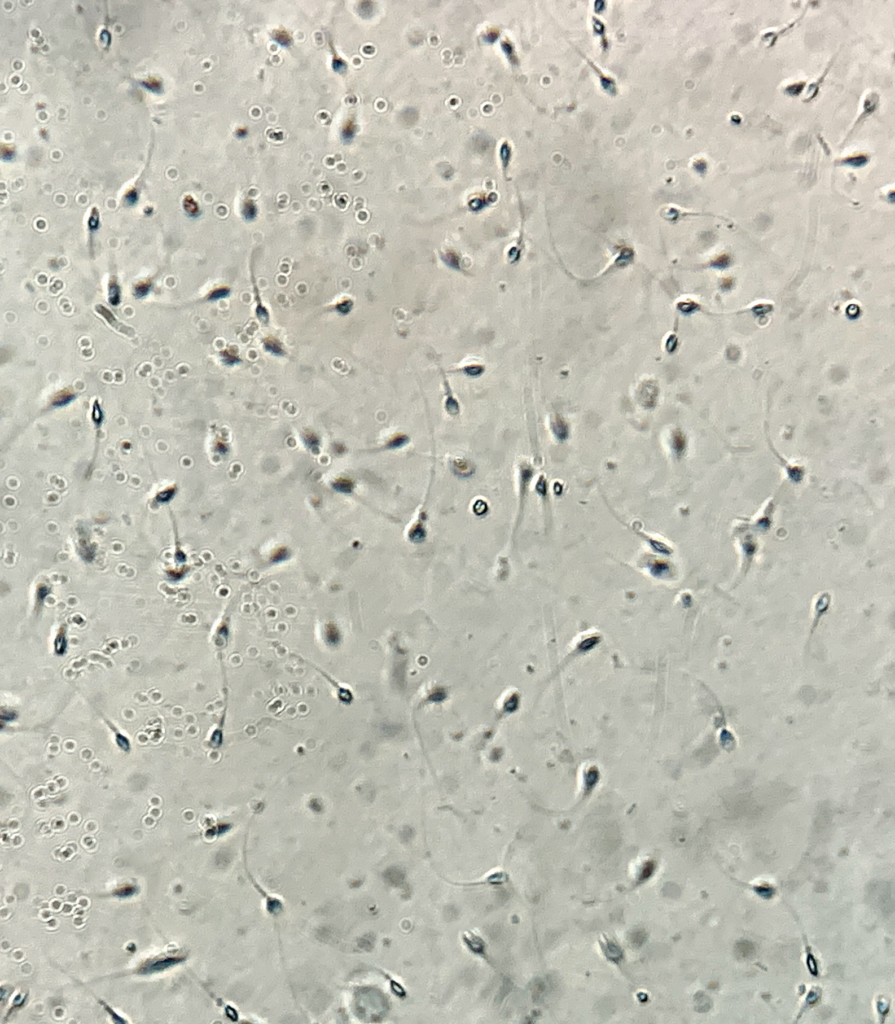Approximately 30% of fertility challenges are related to male factor infertility. For couples experiencing infertility, we may recommend a male fertility assessment, to identify any underlying issues. Read on to learn what that assessment includes.
Our male fertility assessment includes a detailed medical history, a general physical exam, blood tests, infectious disease screening and semen analysis.
Semen analysis is a fundamental tool for diagnosing male infertility. It measures several key indicators, including:
The number of sperm cells in the sample.
The shape of the sperm.
The way that the sperm move.
Our lab team will also analyze a sperm sample for ejaculation volume, viscosity, fructose levels, PH levels and any signs of infection. Since sperm are constantly being created in the testes, each sperm sample analysis will have different results. In most cases, we will perform several tests over a period of time to get a comprehensive diagnosis.
Sperm analysis may include:


Based on medical history and the diagnostic tests results, our fertility specialist will recommend a treatment plan that may include:
Often simply getting healthier will go a long way to improve sperm quality. Men can impact the quality of their sperm through various lifestyle changes, such as a healthy diet and avoiding alcohol, smoking, stress, and excessive use of saunas and hot baths.
Research has shown that sperm production can also be improved by taking specific, clinically proven supplements.
Surgical intervention may be recommended to treat varicocele (widening of the veins in the scrotum) or to clear blockages in the tubes that carry sperm.
Antibiotics can help clear up specific infections in the male reproductive system
This treatment is used to address hormonal imbalances.
We may recommend medication or counseling to reduce stress and address sexual disfunction.
Depending on the semen analysis results, we may recommend ART, in which the sperm is collected either from the patient or a sperm donor and used to fertilize the egg using one of the following techniques:
Artificial insemination may be used in certain cases of low sperm count and/or quality. In this procedure, sperm is collected from several ejaculations. Any poor quality sperm cells are removed, and a concentrated sperm sample is placed directly in the woman’s uterus.
During in-vitro fertilization (IVF), mature eggs are collected from ovaries and fertilized with sperm in a lab. The developing embryo is then transferred into the woman’s uterus.
Intracytoplasmic sperm injection (ICSI) is often part of the IVF procedure to optimize results. With ICSI, a specific, single sperm cell is injected directly into the cytoplasm of the egg. This may be recommended to attempt to increase the number of eggs that fertilize. Male infertility is a complex condition that can be caused by a combination of factors. A fertility specialist at Anova will help create a complete picture of your fertility factors, and develop a treatment plan tailored to you.
Some of these tests are covered by OHIP. If you have concerns about cost, please don’t hesitate to contact us.



We can send you everything you need to get a referral. Where should we send it?
©2023 Anova Fertility & Reproductive Health. All Rights Reserved.